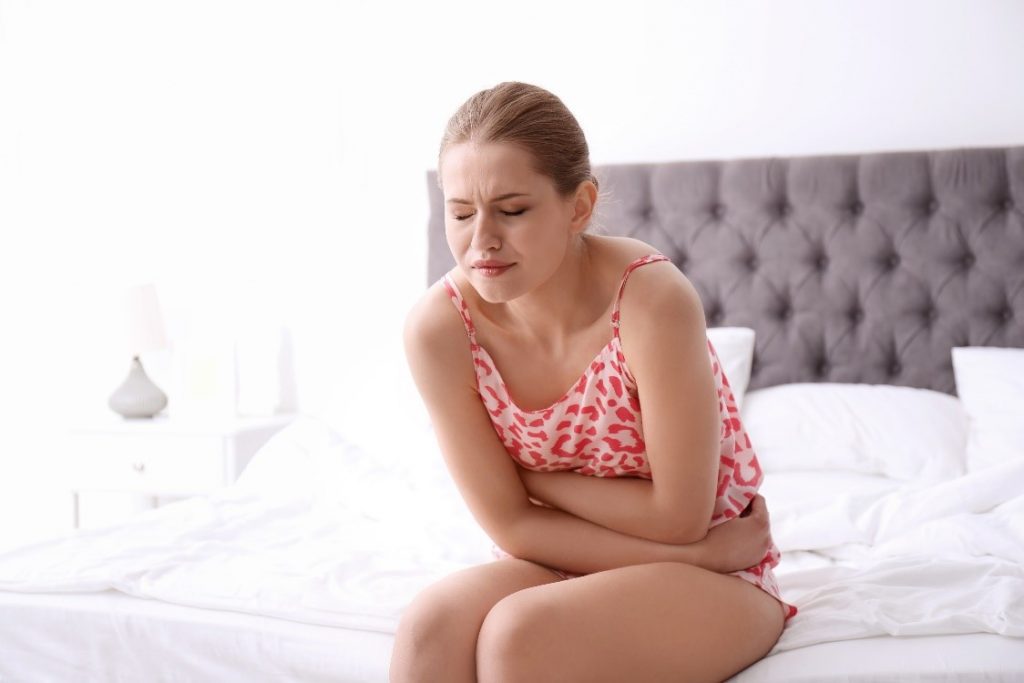


Endometriosis has been a topic in the news this week with new research published in PLoS One finding endometriosis costs women on average $31,000 AUD per year.
Due to endometriosis being a somewhat silent condition, many people have very little knowledge as to what the disease entails. Endometriosis affects one in ten Australian women and is a debilitating disease of the female reproductive system. Many women live undiagnosed as there is an average 7 to 12-year delay in diagnosis. The disease impacts women’s relationships with others, ability to work and study, mental wellbeing and physical health. Common symptoms include chronic pain, infertility and heavy and painful periods. While there is currently no cure, women can manage symptoms with the help of their healthcare professionals.
What is endometriosis?
Endometriosis is a disease where the tissue which normally lines the uterus grows in other areas of the body such as the ovaries, pelvis and bowels. Other common sites endometriosis can be found are the cervix, vagina, vulva, fallopian tubes, uterus and bladder. This stray endometrial tissue is often labelled as endometrial implants or lesions.
Like normal tissue that lines the uterus, endometrial tissue thickens, breaks down and bleeds with each menstrual cycle but it can’t leave the body like normal menstrual blood does. This causes inflammation in surrounding organs resulting in pain and irritation even when a woman is not menstruating. This irritation often leads to scar tissue forming in the pelvic area which makes basic body functions such as ovulating and going to the toilet painful.
Symptoms
House Call Doctor suggests looking out for these symptoms and seeking help from your trusted healthcare professional if you are experiencing symptoms.
- Painful periods
- Heavy periods
- Irregular periods
- Pain during or around ovulation
- Pain during or after sex
- Pain with bowel movements or urination
- Abdominal (stomach) or pelvic pain
- Pain in the lower back or legs
- Nausea
- Diarrhoea or constipation
- Difficulty falling pregnant (infertility)
- Feeling bloated
- Fatigue and mood swings, particularly around the time of your period.
Possible Causes
The cause of endometriosis is not currently known, however, there are some contributing factors leaving some women at a higher risk to develop the disease than others.
Risk factors include:
- A female relative such as a mother or sister with endometriosis
- Starting your period early (before 11 years old)
- Frequent or short menstrual cycles
- Long and heavy menstrual cycles
- Low body weight
- Going through menopause at an older age
- Problems with your immune system
- Never giving birth
- Higher than normal levels of oestrogen
- Reproductive tract abnormalities that prevent the flow of menstrual blood from the body.
Diagnosis
Talking with your doctor is the first step to reaching a diagnosis of endometriosis. If your symptoms match up, they should refer you to a gynaecologist or suggest an ultrasound. The only way women can be properly diagnosed is through laparoscopic surgery. This surgery allows doctors to examine the pelvic organs and remove endometrial tissue if necessary. If your doctor believes endometriosis is affecting your bowels, they may suggest a colonoscopy, where a camera attached to a medical instrument examines the bowels. Some women will be assumed to have endometriosis but cannot undergo surgery due to other ongoing medical conditions and are left without a proper diagnosis.
Some women experience a delay in diagnosis and see a range of healthcare professionals before they are diagnosed. Home Call Doctor suggests finding a doctor who has special interests in women’s health if you’re struggling to reach a diagnosis with your current GP.
Treatment
While there is no cure for the disease, there are some ways to alleviate symptoms for suffering women. Surgical procedures like a laparoscopy to remove the tissue is one of the most effective treatments. Hormone medications such as the birth control pill, IDU or an implant also help by reducing the endometrial growth. Pain relief medications also help manage the chronic pain many women experience with endometriosis. A Hysterectomy, surgery to remove the whole womb, may also be suggested to women with extremely severe cases of the disease.
Do you think you have Endometriosis?
If you are experiencing the symptoms mentioned in this article it is important to seek help from your doctor. There are a range of other reproductive health issues such as Polycystic Ovarian Syndrome (PCOS) with similar symptoms and only your doctor can help you reach a diagnosis. House Call Doctor suggests educating yourself about what is and is not normal when it comes to your period and reproductive system and talk to your doctor if you’re concerned.




